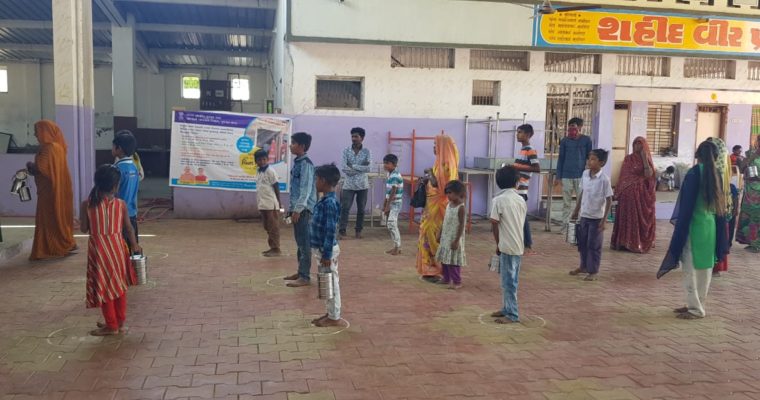March 23, 2020
On behalf of 93.7 % of the workforce of the informal economy, we appreciate the prompt initiatives taken by the Central and State Governments to curtail the effects of COVID-19. In India, there are 50 crores poor and vulnerable informal workers who are daily wagers like contractual workers, casual workers, construction workers, agriculture workers, home-based workers especially in textile and garment manufacturing, beedi workers, self-employed workers like street vendors, waste recyclers, hand cart pullers, auto-rickshaw drivers and many more who are struggling daily to meet their minimum basic necessities through their daily labour. The COVID-19 pandemic has badly hit their daily earning and hence their income to sustain themselves. Some illustrations;
Waste recyclers who are real warriors of the Swachh Bharat movement are seeing both a decrease in the rates they get for waste, and often times are unable to sell their waste as their wholesalers have shut their warehouses. Millions of home-based workers are involved in finishing or value addition such as embellishments on garments, doing embroidery, etc. Since much of the work is from shops or even from foreign orders, work is completely stopped. For example, more than 4 lakh Chikan embroidery workers in Lucknow are out of work since the first week of March, due to fear of infection from their hands. Agriculturists are being hit and they are unable to sell their produce as traders are not buying from them. Vegetable growers are the worst affected, their goods are perishable, and if they are able to sell it at all, it is at negligible prices. Domestic workers are not being allowed inside households and they have lost their earnings. The construction industry has completely come to stand-still affecting livelihood millions of construction workers. Markets have closed affecting the earnings of lakhs of street vendors. The auto drivers and rickshaw drivers have no passengers and so no earnings. Further, a reverse interstate urban-rural migration is being experienced and the health condition of the workers who return to their home-towns or villages is putting extra burden locally.
In spite of all the dangers, many informal workers are providing valuable essential services, including street vendors reaching fresh fruit and vegetables, agriculture workers growing food for the nation, truck drivers, auto drivers and other transporters reaching essential goods and services, waste pickers and garbage cleaners ensuring a healthy environment, manufacturers of masks and medicines ensuring essential supplies, contract workers in hospitals, electricity companies, etc.
In such conditions, the Self Employed Women Association (SEWA) on behalf of its 1.7 million women workers in 18 States of India urge the Government to declare;
- Income support to all the families of the informal economy workers to tide over this crisis, so that they are able to sustain their basic needs.
- Issue a Circular to all the States directing Building and other Construction Workers Welfare Board and other existing Labour Welfare Boards to declare a compensatory package of Rs 5,000/- per month to all the registered workers to tide over the crisis.
- Free Public Distribution System for Ration supply as long as the crisis last.
- Six months amortization on repayment of all loans.
Signed
Manali Shah, National Secretary, SEWA
Jyoti Macwan, General Secretary, SEWA
SEWA, India is a member of AFA. Follow SEWA on Facebook.




Comments are closed